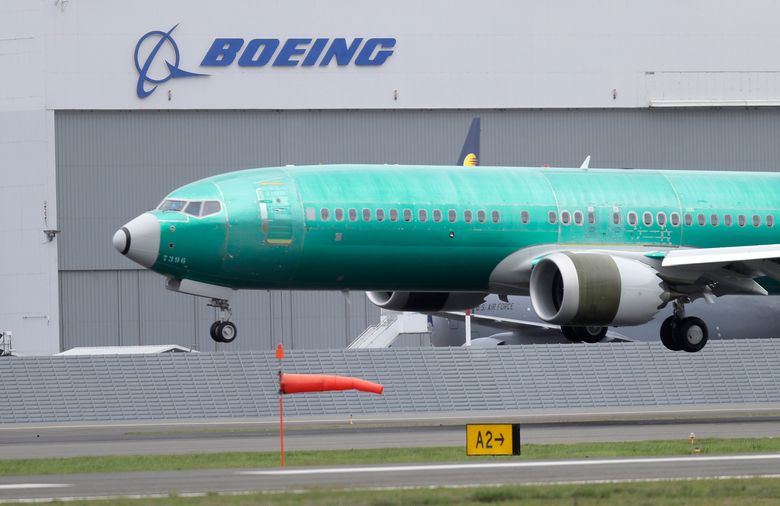The days when Boeing earned renown as an aerospace titan that Puget Sound and America could trust appear sadly gone. The well-documented mistakes that resulted in fatal crashes of the rushed-to-market 737 MAX are among numerous symptoms of deep corporate rot going back years, and continuing long after responsible leadership should have reversed course.
In December, a U.S. Senate whistleblower report indicated Boeing’s indifference to reports of flawed manufacturing processes persists, years after insiders first sounded the alert. Weeks later, the nonpartisan political watchdog Accountable.US found Boeing is the second-largest donor in America to members of Congress who voted to overturn the 2020 presidential election. Add these transgressions to the long list of quality-control and engineering missteps on which Boeing should have long ago hit the brakes.
A riveting book about the downfall of this once-mighty company makes a persuasive case linking this fall from corporate grace to the company’s abandonment of Puget Sound as its longtime headquarters. Two decades since Boeing’s once-shocking shift of its corporate base to Chicago, journalist Peter Robison’s “Flying Blind: The 737 MAX Tragedy and the Fall of Boeing” details the company’s disastrous departure from having “perfectionism in its DNA,” as Robison put it. The December sale of its Longacres headquarters for Commercial Airplanes is the latest symbolic milestone in this corporate journey of divestment from its roots. Although Amazon supplanted Boeing in 2020 as Washington’s largest employer, the aerospace giant remains massively important to this region. The nearly 60,000 Washington employees on the Boeing payroll as of January 2021 need their company to reassert its formerly rock-solid fundamental principles.
Acknowledging painful truths and undertaking a public reassessment ought to be high priorities for Boeing and its regulators. Instead, there are shameful evasions. Boeing Chief Engineer Greg Hyslop wouldn’t even answer The Times’ aerospace reporter Dominic Gates when asked directly if engineers had been held accountable for the problems of the 737 MAX’s software. A year ago, the Department of Justice enabled Boeing to buy its way out of criminal liability by agreeing to a $244 million fine. That’s an inadequate substitute for holding managers and executives directly responsible for the corner-cutting that put a dangerous plane into commercial use.
Boeing’s former 737 MAX chief technical pilot Mark Forkner is awaiting trial on federal fraud charges over the 737 MAX. He should not be the only person held directly responsible, when the Department of Justice alleged extensive “misleading statements, half-truths, and omissions communicated by Boeing employees to the FAA” prefigured the 737 MAX crashes. Boeing’s directors and senior executives during that time — including former executives CEO Dennis Muilenburg and Commercial Airplanes CEO Kevin McAllister as well as departing Chief Project Engineer Michael Teal — should not be easily absolved. Families of the 346 people killed in the 737 MAX crashes deserve a credible, transparent process with real accountability. An eloquent Op-Ed essay in the Times last week by Michael Stumo, whose daughter died in the 2019 crash of a 737 MAX in Ethiopia, convincingly made the case that fining the company is grossly inadequate for the cause of true accountability.
Instead, Boeing continues its fade away, both from its Puget Sound foundations and the traditions of integrity and reliability it once cultivated here. The company earned its ongoing business and credibility crisis. Getting out of it will be a lot harder.
